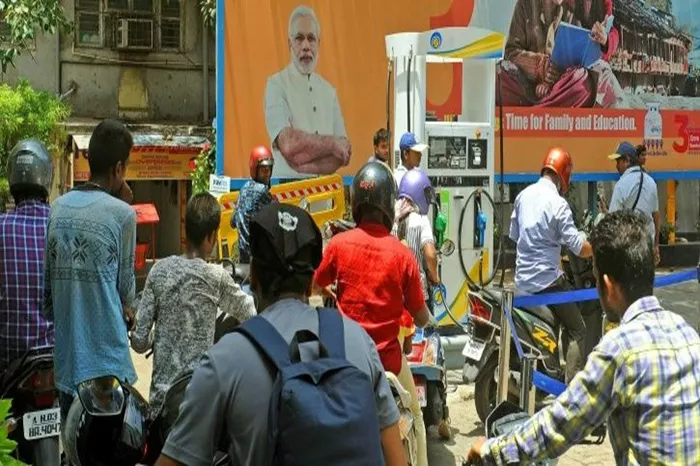Oil marketing companies (OMCs) in India continue to update petrol and diesel prices every day at 6 AM, reflecting global crude oil price fluctuations and currency exchange rate changes. This ensures transparency and helps consumers stay informed about current fuel costs.
As of December 10, the price of petrol in major cities across India is as follows:
In Delhi, petrol costs Rs 94.72 per litre, while diesel is priced at Rs 87.62 per litre.
Mumbai sees the highest fuel prices, with petrol at Rs 103.44 and diesel at Rs 89.97.
Chennai’s petrol is priced at Rs 100.85, and diesel costs Rs 92.44.
In Kolkata, petrol is available for Rs 103.94 per litre, and diesel costs Rs 90.76.
Cities like Noida and Lucknow have petrol prices of Rs 94.66 and Rs 94.65, respectively, while diesel is priced at Rs 87.76 in both cities.
In Bengaluru, the price of petrol stands at Rs 102.86, and diesel costs Rs 88.94.
Hyderabad has the highest diesel prices at Rs 95.65, with petrol priced at Rs 107.41.
Other cities like Jaipur and Trivandrum report petrol prices of Rs 104.88 and Rs 107.62, respectively, with diesel at Rs 90.36 and Rs 96.43.
Bhubaneswar reports petrol at Rs 101.06, and diesel at Rs 92.91.
Since May 2022, fuel prices in India have remained relatively stable following reductions in fuel taxes by both central and state governments, offering some relief to consumers amid global market fluctuations.
Key Factors Affecting Fuel Prices in India
Crude Oil Prices: The primary driver of fuel costs, global crude oil price fluctuations directly impact the prices of petrol and diesel in India.
Exchange Rate: Given that India imports a significant portion of its crude oil, changes in the exchange rate between the Indian rupee and the US dollar influence fuel prices. A weaker rupee generally leads to higher fuel costs.
Taxes: Petrol and diesel prices in India are subject to taxes imposed by the central and state governments. These taxes can vary by region, contributing to the price differences across the country.
Refining Costs: The cost of refining crude oil into petrol and diesel is another important factor. These costs can vary depending on the type of crude processed and the efficiency of the refinery.
Demand: The balance between supply and demand plays a crucial role in determining fuel prices. When demand increases, fuel prices typically rise as suppliers adjust to market conditions.
OMCs update fuel prices daily to reflect these factors, ensuring that consumers are provided with accurate and current information on fuel costs.
Related topic:
How Does a Diesel Fuel Water Separator Work?

